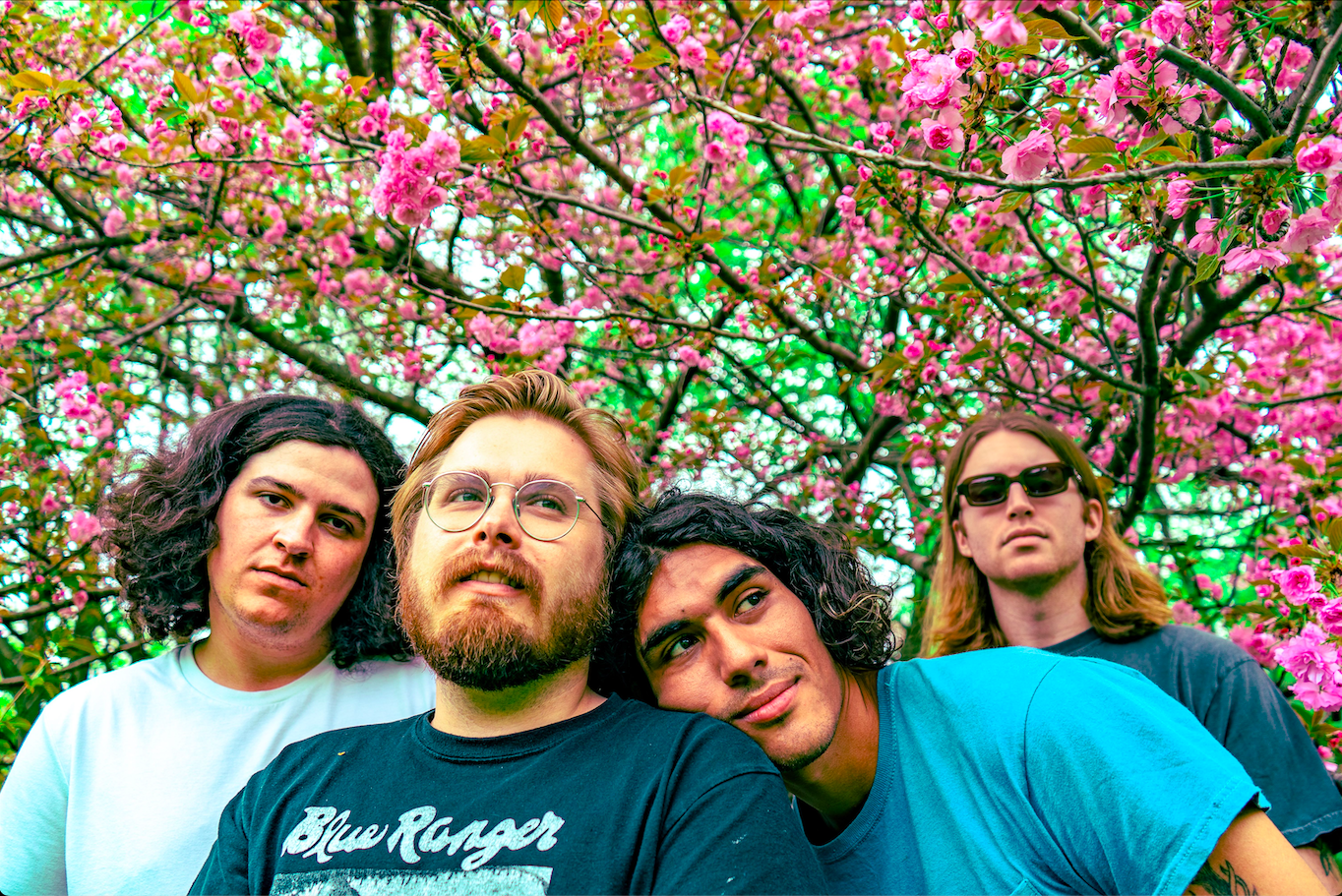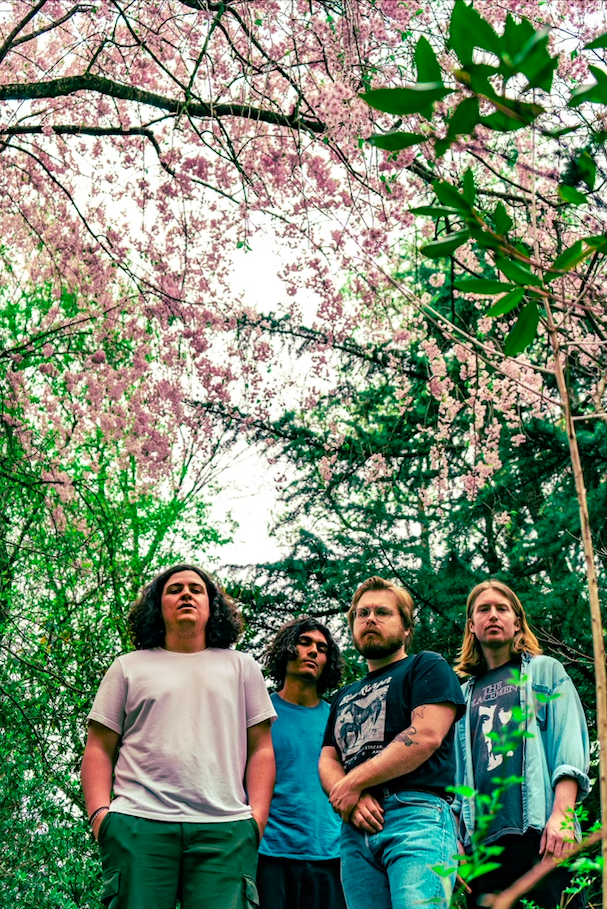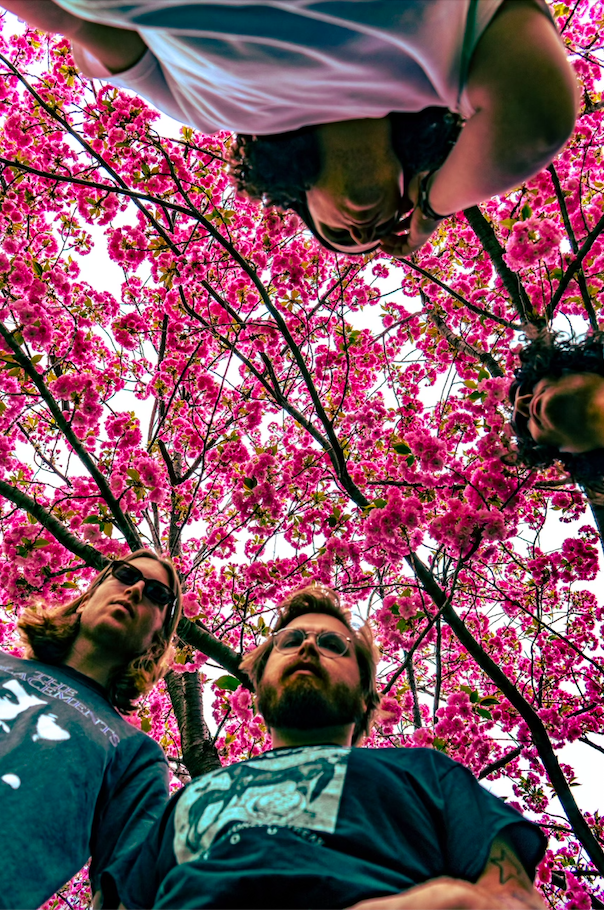Photo Credit: Nicole Miller
Written by: Tabb Carneal
After a recent migration from Charleston to New York, Tennis Courts are beginning to feel settled. The now Brooklyn-based indie rock band have nestled themselves amongst the burgeoning handful of young artists who have become staples at NYC’s various hip watering holes and dark clubs.
Tennis Courts appear antithetical to New York’s downtown music crazes, saturated with celebrity promotion and terms like “indie sleaze.” Instead, their earnest and schoolboy approach to crafting catchy rock music has garnered the band a following of musicians, artists, and locals looking for cheap thrills.
Sitting down with me at a pub in Clinton Hill, Tennis Court’s founding member and guitarist Pat Walsh explained that “we’re at a good place right now. We have a solid foundation.”
Photo Credit: Nicole Miller
The band’s other founding members Andrew ClarkE (drums) and Walsh, have been writing and performing in tandem since their time at The College of Charleston. Upon graduating, the two immersed themselves into the Charleston music scene, accepting any and all gigs to play amongst a growing rotation of bands at venues that varied from biker bars to marinas.
When asked about the music scene in Charleston, Brian McKenna (guitar) notes that “the city can feel small but there’s always been a lot of good music. I think there’s a set number of bands there; a set number of places to go tonight.”
Tennis Courts’ most recent EP, Music for Movies and Television, was recorded in Charleston before Pat and Andrew packed their gear and left the city. The EP explores transitory feelings of displacement during Covid-19 while never sounding sappy or succumbing to cliches.
Instead, the EP begins with “Malibu,” which, as the title suggests, barrels directly into a surfy guitar riff, establishing a playful and upbeat tone. Andrew’s vocal count-in behind the drumset is slightly quiet on the mix but instantly provides the track a charging garage rock undertone. However,
the interchange between Pat and Andrew on vocals generates the song’s intrinsic snappiness and groove. It’s apparent that they complement each other and have practiced this exchange for years. Back and forth, they alternate lines while singing, “That place out in Malibu / It’s getting pretty boring without you / So you’re moving to the city? / Because it’s where you always wanted to be.”
However, moving to the city was a substantial risk for the band. Tennis Courts had enjoyed local popularity in Charleston, and their transition to NYC not only opened the door to new possibilities but new shortcomings, “the difference between New York and Charleston was that most people in Charleston knew the bands we played with and might have known who we were too,” Andrew Explains, “We played so often around there. But when we moved to NYC, it was immediately different. We had to start over a little.”
Photo Credit: Nicole Miller
Their reset included solidifying Brian McKenna as an additional guitarist and Spencer Brigman on bass. While both are talented musicians, who have played with several groups in prior years, Andrew also noted that “with Brian and Spencer, we have two solid pillars to be there during the entire process. The collaboration aspect of what we’re doing is what makes this upcoming album a step up.”
Tennis Courts’ upcoming debut album develops these ideas of collaboration, drawing inspiration from each member’s musical upbringing. When asked about the album, Pat describes, “The album leans more folk, but we still incorporate elements of different genres - shoegaze, indie-rock, or even pop. You can trace the styles of each song - you can tell that we were listening to early Jackson Browne, Big Star, The Beths, even Dinosaur Jr. It genuinely sounds like a full band had creative input on it. Not like it was somebody just writing lyrics in their bedroom.”
Although the album is entirely recorded, with singles set to be released in the spring, Tennis Courts wanted to take their time mixing the final product. Debating over mixing strategies for their new songs, the band talked with an air of intentionality and gravity towards the release. Pat explained, “we want to make sure it represents us and we’re really proud about the product. Whatever happens to this first album, it will always be an important part of the band’s history to us.”
On March 3rd, Tennis Courts played a sold-out show in New York’s East Village. The basement they performed in was hot. Traversing to the bar was a physically demanding series of contortions through the packed crowd. When Tennis Courts took the stage, they announced that most of the songs that night would be from their forthcoming album.
I recalled them in the pub weeks prior, saying, “We’re not a band that has to play the hits. In my mind, we’re still new to everyone we perform for, so I want to play the songs that I’m most excited about. For me, that’s always been whatever’s the newest.” The crowd nodded and danced in agreement.



